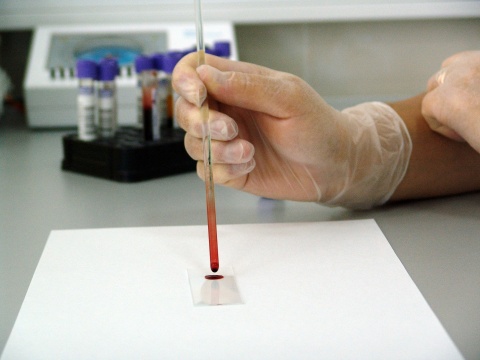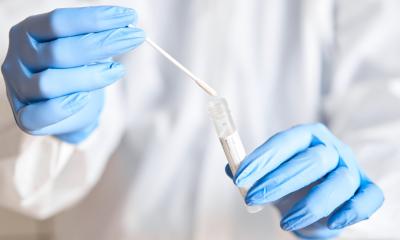News • Research discovery
New blood test may diagnose breast cancer
In a potential major breakthrough in breast cancer research, scientists at the Center for Translational Cancer Research (CTCR) at the Helen F. Graham Cancer Center & Research Institute of Christiana Care Health System have developed a revolutionary new blood test to diagnose breast cancer. Senior Scientist Jennifer Sims-Mourtada, Ph.D., director of Translational Breast Cancer Research at the CTCR located in Newark, Del, developed the test at the CTCR with scientists from Genome Profiling LLC (GenPro).
Monitoring epigenetic DNA changes

“This simple blood test, used in combination with mammography, can be a transformative tool in the fight against breast cancer by determining whether cancer is present in the breast and whether the cancer is likely to spread,” Dr. Sims-Mourtada said. “Using this test could minimize over-diagnosis and treatment while potentially providing significant savings in health care-related costs. Studies have shown that mammograms alone are not optimal for diagnosing all types of breast cancer.”
The test focuses on identifying an epigenetic biomarker within circulating blood cells’ DNA that are part of the body’s immune system and is different from other diagnostic tests that target cancer tumors. “This test is designed to monitor epigenetic DNA changes in the blood cells that could signal an early stage aggressive tumor,” Dr. Sims-Mourtada said. “We know that immune cells in the blood react differently if they are responding to an infection versus a cancer, an invasive tumor or when there is no cancer present at all.”
“Commercializing an epigenetic-based diagnostic test into a simple and cost-effective blood screening test can have huge implications for early intervention strategies in breast cancer,” said GenPro co-founder Adam Marsh, Ph.D. GenPro is a molecular information company specializing in the discovery of novel epigenetic biomarkers using its genome-wide profiling platform.
Earlier detection
“Right now there is no truly effective method for routine monitoring of patients to follow in response to treatment for breast cancer and for possible recurrence of cancer,” Dr. Sims-Mourtada said. “Using the assay we have developed, in conjunction with routine monitoring, enables us to follow changes in the immune response to detect an increase in tumor cells over time. This test can allow for much earlier detection of recurrence or metastatic disease before it is visible with standard imaging and enable much earlier treatment.” Christiana Care and GenPro have filed a provisional patent application with the U.S. Patent and Trademark Office as the first step in the process toward clinical trials and FDA approval for this new blood screening test.
“The development of this novel blood test is a perfect example of how the Center for Translational Cancer Research brings together scientists, clinicians, and partners to create unique, potentially life-saving tools in the fight against cancer,” said Nicholas J. Petrelli, M.D., Bank of America endowed medical director of the Helen F. Graham Cancer Center & Research Institute.
Source: Christiana Care Health System
17.10.2017











